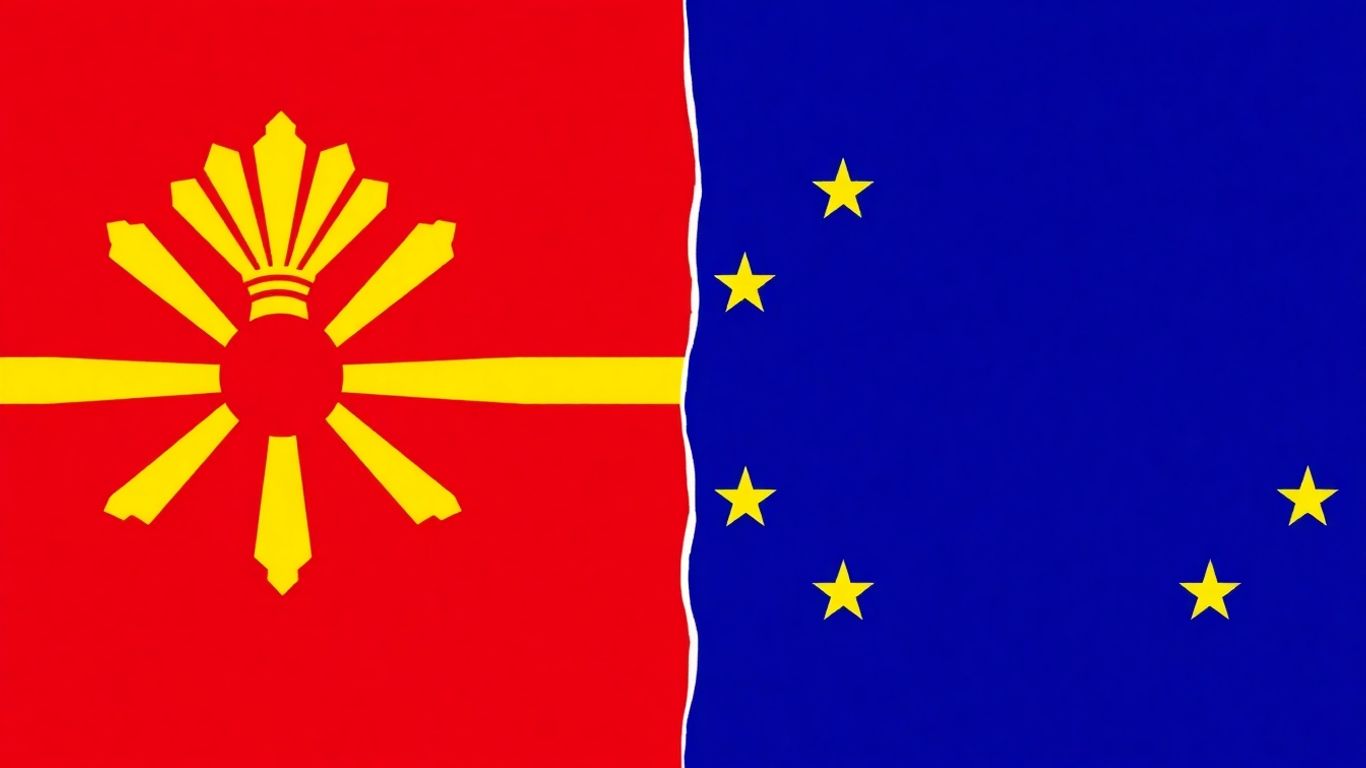North Macedonia’s long-standing bid for European Union membership faces significant hurdles, primarily stemming from a dispute with neighboring Bulgaria over constitutional amendments. Despite EU encouragement for "era-defining decisions," Skopje remains at an impasse with Sofia, which insists on the recognition of a Bulgarian minority within North Macedonia’s constitution as a condition for lifting its veto.
Key Takeaways
- EU officials urge North Macedonia to enact constitutional reforms, including recognizing a Bulgarian minority.
- North Macedonia’s government links these changes to Bulgaria first approving its EU membership.
- Bulgarian MEPs have delayed a key EU Parliament report on North Macedonia’s progress, citing concerns over language and identity.
- The dispute highlights broader challenges in the Western Balkans’ EU accession process.
EU Pressure and North Macedonia’s Stance
European Union’s foreign policy chief Kaja Kallas recently urged North Macedonia to take "era-defining" steps to advance its EU membership bid. Speaking in Skopje, Kallas reiterated the bloc’s support but emphasized the necessity of domestic reforms. A crucial step involves amending the constitution to formally recognize a Bulgarian minority, a demand from Bulgaria that has stalled North Macedonia’s accession talks, which began in 2022.
Prime Minister Hristijan Mickoski, however, maintains that Bulgaria must first approve North Macedonia’s membership before any constitutional changes are made. He argues that EU accession should not be held hostage by bilateral disputes and expects fair treatment from the Union. European Council President António Costa also called on North Macedonia to fulfill previously agreed-upon constitutional changes, stressing that progress requires concluding these matters.
Bulgarian Objections and Parliamentary Delays
The path to EU membership has been further complicated by actions within the European Parliament. Bulgarian Members of the European Parliament (MEPs) successfully delayed a vote on a report evaluating North Macedonia’s accession progress. They cited concerns that the report’s wording regarding "Macedonian identity and language" could lead to misinterpretations, demanding greater clarity.
This move has been criticized by the report’s author, who accused some Bulgarian MEPs of using the accession report for their domestic nationalistic agenda and denounced intimidation tactics. The core of the dispute lies in differing views on the historical and linguistic ties between North Macedonia and Bulgaria, with Sofia asserting common roots that Skopje rejects.
Broader Western Balkans Context
North Macedonia’s situation is emblematic of the broader challenges faced by Western Balkan countries in their pursuit of EU membership. While the war in Ukraine has refocused attention on EU enlargement, issues like rule of law, corruption, and historical disputes continue to impede progress. North Macedonia, a candidate since 2005, opened accession talks in 2022 but has since lagged behind Albania, which also began talks simultaneously. The ongoing impasse with Bulgaria underscores the complex political and historical factors that continue to shape the region’s integration into the European Union.
Sources
- EU presses North Macedonia to make ‘era-defining’ decisions for membership, AP News.
- North Macedonia’s path toward full EU membership stalled by impasse with Bulgaria, AP News.
- North Macedonia wants EU, NATO at its talks to settle row with Bulgaria, Reuters.
- Bulgaria abuses its position to block our EU membership: North Macedonia’s Deputy PM Nikoloski, France 24.
- Bulgarian MEPs delay vote on North Macedonia’s EU accession report, Euronews.com.




